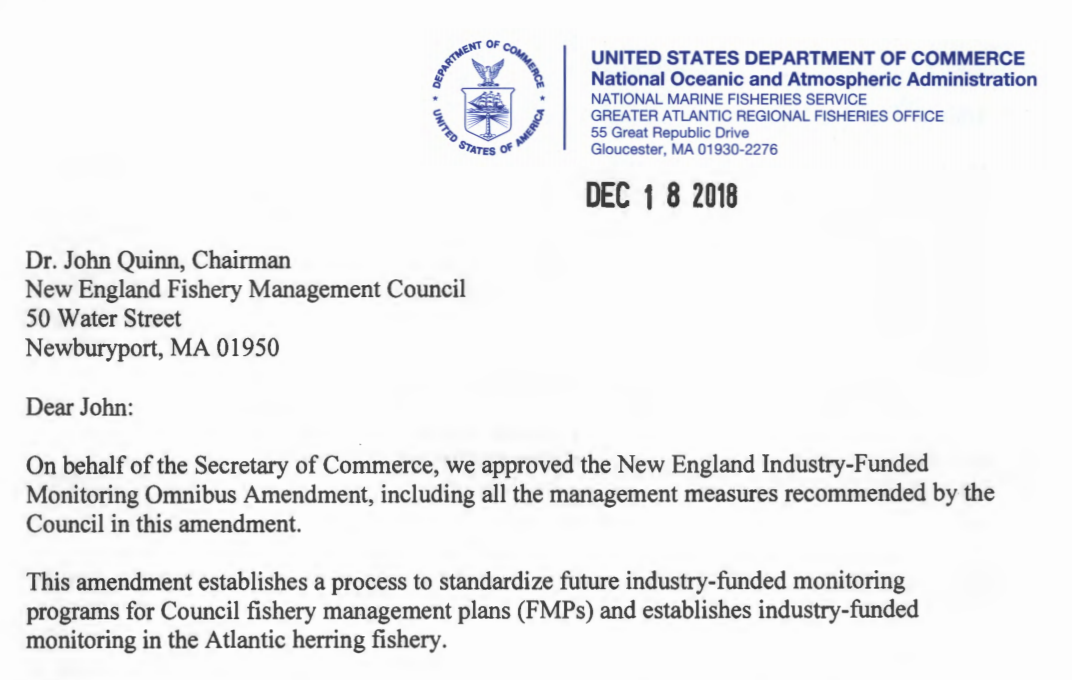The importance of an open and transparent government is rooted in the federal government’s ability to choose winners and losers, create barriers to economic freedom, and limit personal liberties. Family-owned fishing firms in New England recently had their economic freedom put at-risk when it was revealed that the government had secretly approved a proposal to impose new, and statutorily unauthorized, costs on their fishing operations. That’s why Cause of Action Institute (CoA Institute) sent a letter to U.S. Department of Commerce Secretary Wilbur Ross yesterday, criticizing his office’s lack of transparency and inadequate analysis surrounding the controversial fishery management regulations.
In January, CoA Instituted published a previously unreported letter, which revealed that the National Oceanic and Atmospheric Administration (NOAA) and the U.S Department of Commerce (Commerce) approved the New England Industry-Funded Monitoring Omnibus Amendment (Omnibus Amendment), but without providing any reasoned responses to public comments. The approval also came in the midst of a second public comment period for implementing regulations. The Omnibus Amendment is estimated to impose new costs of up to $810-per-day on certain herring fishermen. These costs, which will be used to fund a third-party monitoring scheme, would have devastating economic consequences—especially for small and family-owned fishing operations.
Commerce’s failure to address the valid and pressing concerns raised by several interested parties in the first round of public comments, including questions about the statutory authorization for industry-funded monitoring raised by CoA Institute, is particularly egregious. CoA Institute has repeatedly argued that the government lacks statutory authority to force commercial fishermen on the East Coast to pay for at-sea monitoring. The Secretary of Commerce was responsible for reviewing the Omnibus Amendment for compliance with applicable laws as well as considering public comments. The Secretary appears to have failed to do so in this case. Government officials also are expected to conduct rulemaking in a manner that promotes accountability and transparency. This is meant to protect the openness of the regulatory process. That transparency was seriously lacking in this instance.
CoA Institute’s letter requests that Secretary Ross (1) publicly confirm his approval of the Omnibus Amendment (2) and publish responses to the issues raised during the initial comment period. CoA Institute also requests that Commerce disapprove the implementing regulations for the Omnibus Amendment, which are expected to be finalized later this spring. We look forward to a response addressing these concerns.
A copy of the letter to Secretary Ross can be found here. Additional background on this issue can be found here, here, and here.

